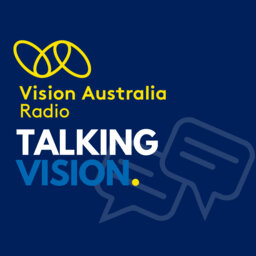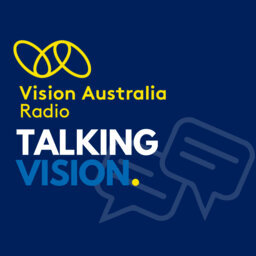Talking Vision 613 Week Beginning 14th of February 2022
Vision Australia Radio presenter and audio describer John Westland joins Sam on this week’s program to celebrate World Radio Day which recently took place on Sunday the 13th of February, inaugurated by UNESCO in 2011 to commemorate the importance of radio as the medium reaching the widest audience in the world.
Then later on in the show Tess Herbert catches up with Sarah Bloedorn from the library to chat all about Library Lovers Day, find out about some upcoming events at the Vision Australia library and share some Valentine’s Day book recommendations.
And finally this week we wrap up with a little bit of news and information.
In 1 playlist(s)
Talking Vision by Vision Australia Radio
Vision Australia Radiothon is on now. Donate via www.varadio.org and make a tax deductible donation …Social links
Follow podcast
Recent clips

Talking Vision 821 Week Beginning 2nd of March 2026
27:47

Talking Vision 820 Week Beginning 23rd of February 2026
27:55

Talking Vision 819 Week Beginning 16th of February 2026
28:59
 Talking Vision by Vision Australia Radio
Talking Vision by Vision Australia Radio